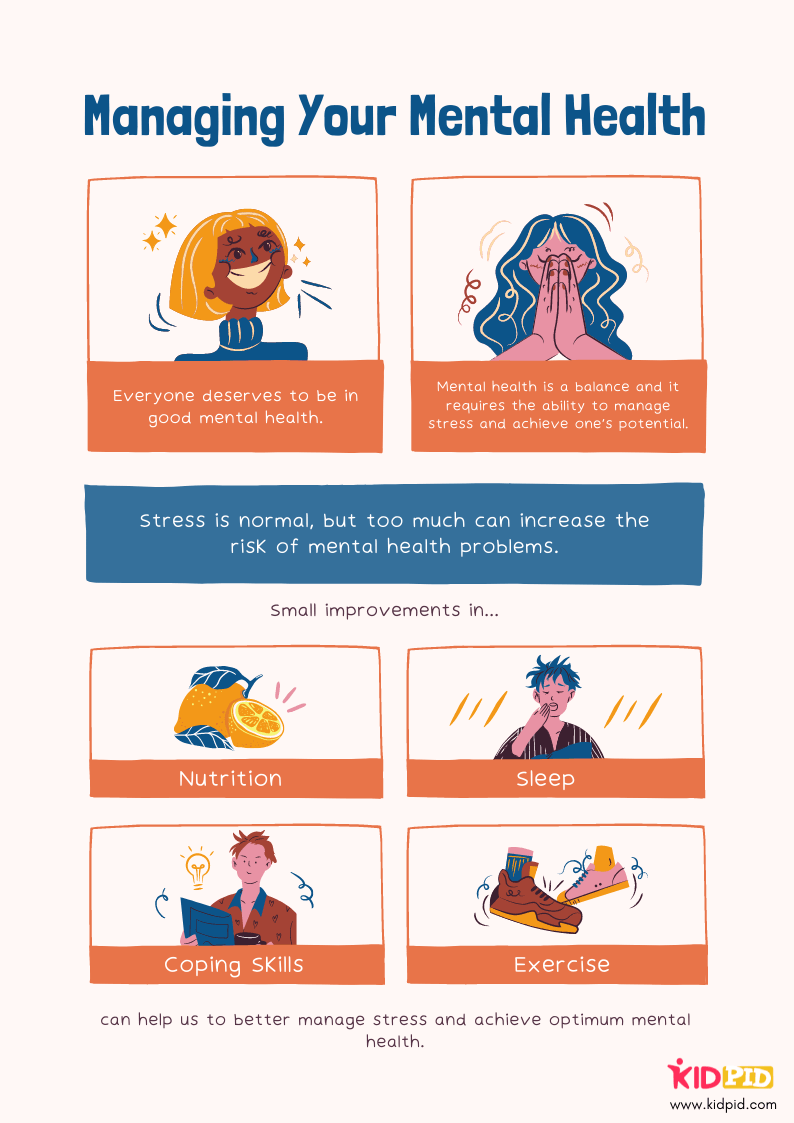What is mental health?

Mental health refers to the intellectual, subjective, and emotional well-being of an individual. It’s the psychology as to how people feel, interact and behave. One of the biggest misconceptions of mental health is that people consider it to be secondary to physical health while in reality, it is just as important if not even more. Mental health is a term widely used nowadays and has gained a lot of importance in recent years.
Contents
Is mental health the need of the hour?
According to a statistical report, one in five adults experience a mental illness every year and about 45 per cent of adults get affected by mental illness at some point in their life. The most terrifying part is that it isn’t easily visible to others. Since all of us are so good at ‘playing the part’, it is quite difficult to pinpoint who is suffering in silence. We need to talk about it in order to remove the shame and stigma surrounding the topic and allow people to seek out help when they need to.
Are there any symptoms of people that suffer from mental problems?
A mental illness and its symptoms can affect emotions, thoughts, and behaviour to a great extent.
Signs and symptoms of mental illness include:-
- Feeling sad or down most of the time.
- Reduced ability to concentrate on your daily work.
- Cutting off ties with friends and reality.
- Change in daily routine that may include eating habits.
- Substance abuse problems
Does mental health concern children too?
Mental Health is a concern that is not bound to the individual’s age. Encouraging psychological and emotional fitness is an important part of mental health. Children with stable mental health can develop emotionally, form effective social bonds with each other and become better problem solvers in the future.
How to cure the problems of mental health?

Many people achieve positivity within themselves through participating in individual or group treatment. Having self-belief and confidence can help to tackle the problems. However, there is no one treatment for all problems and the same treatment may work for some but not for others. The best way to tackle mental health issues is to consult a therapist but certain tips may help you get a better idea of what you need.
Here are some suggestions that may help one balance their life and take care of their mental well-being:
1. Value Yourself
Always treat yourself with kindness and respect. Don’t be hard on yourself too often. Reserve some time for hobbies and favorite projects that helps you express yourself and feel good about yourself.
2. Take care of your body
Taking care of your body not only helps you grow physically but also helps you to evolve at a mental level. It’s a cliche to advise people to exercise but regular practice can go a long way. Make sure to:
- Eat a nutritious meal.
- Exercise, which helps to reduce anxiety and depressions.
- Get enough sleep.
3. Learn to deal with stress
Stress is a part of everyone’s life. We should know how to handle it effectively. Just for instance taking a walk, playing with your pet, and writing up essays helps you to overcome it and grow up to a better person. Everyone has their own way to handle stress so the best way it to figure that out is to try a bunch of different methods and see what works best for you.
4. Surround yourself with quality people
Friends and family are the ones that will always be with you even in the darkest of times. People with strong family or social connections are always healthier compared to those who lack them. Always stay close with quality people and share your problems with them.
5. Psychological therapy
Consult a doctor or health professionals to talk about the symptoms and concerns. Discuss new ways of thinking and managing them. Health professionals often help people to tap into their problems and help them to solve them.
Objective Questions:-
- How can we cure mental problems?
(a) Talking about the problems with friends and family
(b) Taking healthy diets.
(c) Have the ability to deal with stress.
(d) All of the above - How many people suffer from mental health?
(a) one in every five.
(b) No one suffers.
(c) one on every ten.
(d) one in every hundred. - Which age group of people suffers from mental health?
(a) 18+
(b) 45+
(c) 60+
(d) anyone can suffer.
Quiz:-
- We should never talk about our problems with anyone. (T/F)
- Exercise can help with problems of mental health. (T/F)
- Mental Health means that people are absent-minded. (T/F)
- Mental health refers to the emotional well-being of an individual. (T/F)
- There is no cure for mental health.(T/F)
Interesting Facts:-
- The global economy loses about $1 trillion per year in productivity due to depression and anxiety.
- Depression is one of the leading cause of disability, affecting 264 million people.






Responses